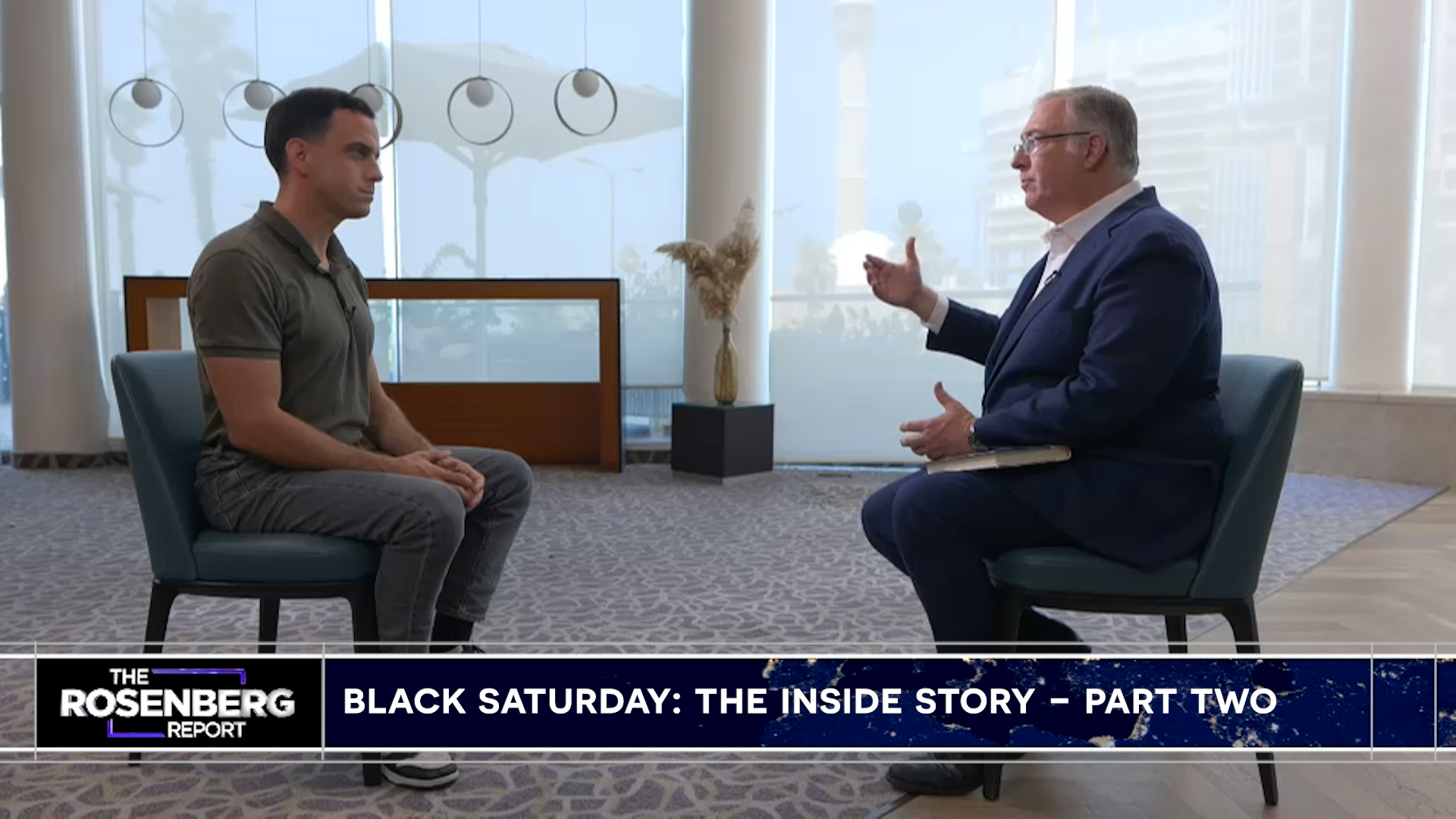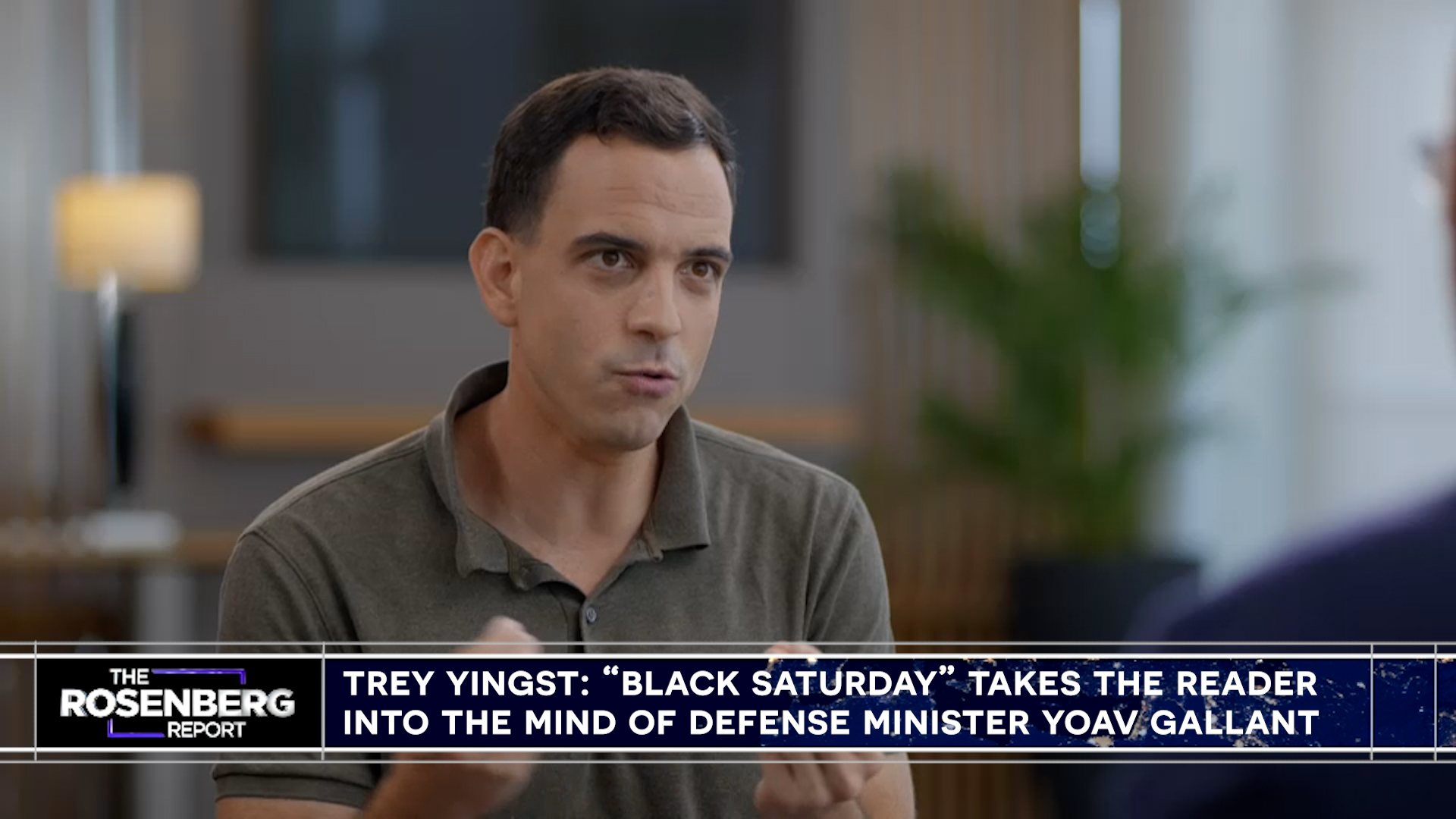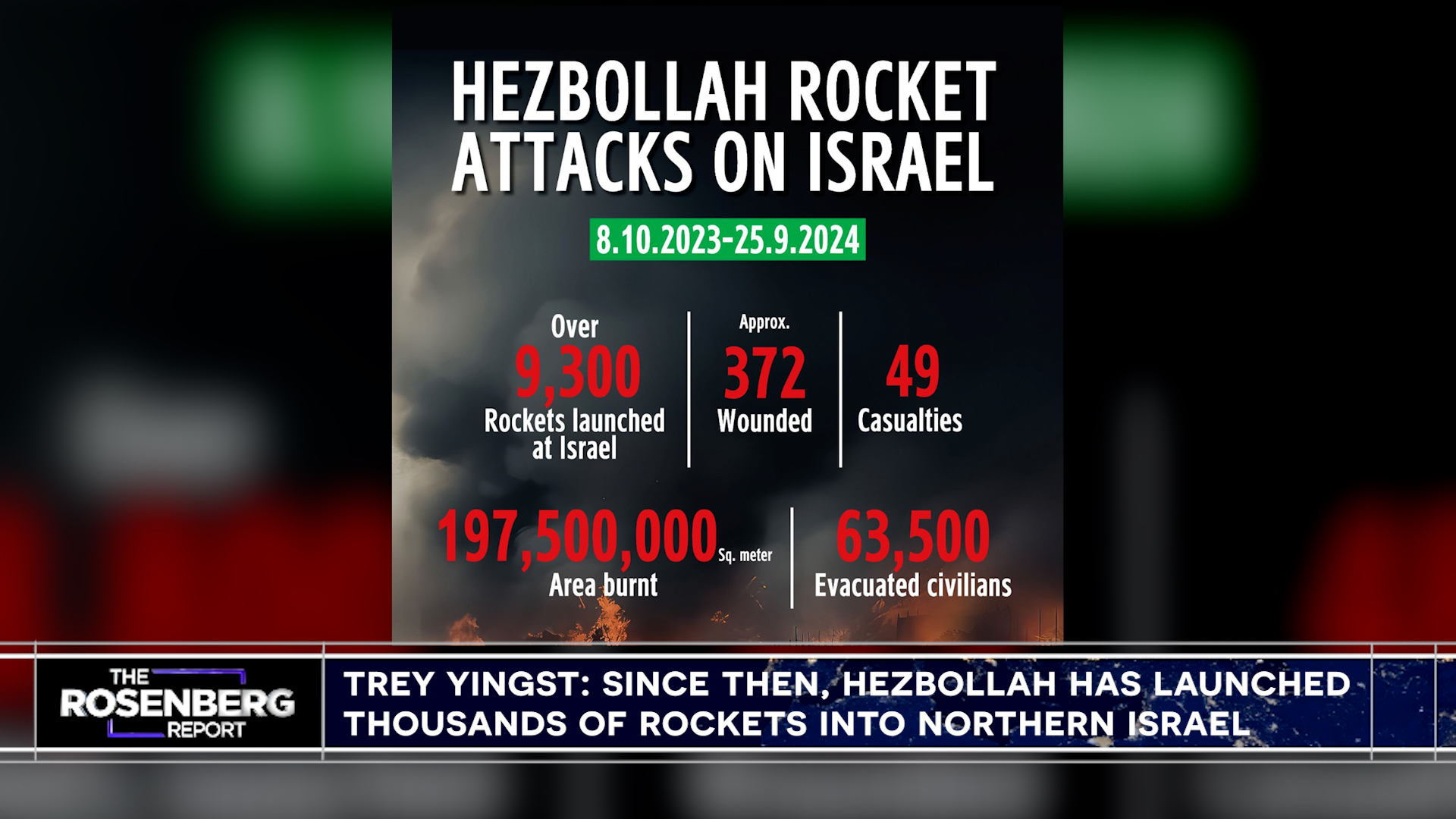Allisreal News
It is no secret that Israeli Prime Minister Benjamin Netanyahu and Defense Minister Yoav Gallant have had massive clashes before the Oct. 7 war and throughout it. Recent reports in Hebrew media indicated that Netanyahu is planning to fire Gallant – yet again – and replace him with Gideon Sa’ar.
How bad is the rift between them? To what extent is it driving the country and impacting the course of the war?
In Part One, Fox News Chief Foreign Correspondent Trey Yingst, who has been covering global conflicts for many years – including in Iraq, Afghanistan, Ukraine, Pakistan – told ALL ISRAEL NEWS Editor-in-Chief Joel Rosenberg his experiences covering the Hamas invasion and attack on southern Israel on Oct. 7.
Yingst is the only U.S. journalist who managed to get exclusive access to Gallant during the war, as the Israeli minister rarely talks to the press.
“We met in person in the Kirya, Israel’s version of the Pentagon, to discuss the war and also what October 7th was like for him,” Yingst told Rosenberg in Part Two of his interview for THE ROSENBERG REPORT on TBN.

(Photo: Screenshot/TBN’s The Rosenberg Report)
Yingst said Gallant shared his insights about his military strategy for hitting Hamas and the plan for the IDF’s ground invasion of Gaza.
“He had this idea of hitting Hamas hard on the outside because he knew they would be strong in a ring around places like Gaza City, but also specifically around neighborhoods in Gaza,” Yingst said.
“Hit them hard there, penetrate the outer ring, and then the task would be much easier. And so, this was part of his strategy, and he talks about this in our interviews.”
The insights that Yingst gained from those conversations with Gallant are included in his new book about the Hamas massacre of Oct. 7 and the ensuing war: “Black Saturday: An Unfiltered Account of the October 7th Attack on Israel and the War in Gaza.”
Yingst shares firsthand accounts of released Israeli hostages, high-ranking IDF soldiers, displaced Gazan civilians and even a senior member of Hamas.
“I put in an interview request formally for this book with Israel’s Prime Minister, Benjamin Netanyahu, and Israel’s defense minister, Yoav Gallant,” he revealed to Rosenberg.
“Netanyahu’s people tried to push me off to advisors… Gallant had been willing to speak from the beginning of the war.”
“It’s important for me as a journalist to be on the record saying that I always give everyone an opportunity to speak,” he added.

(Photo: Screenshot/TBN’s The Rosenberg Report)
Netanyahu and Gallant have a different vision for the end of the war, and they are especially conflicted over what is the best course to handle negotiations around a potential ceasefire/hostage release deal. They have clashed many times over the IDF’s ability to pause the fighting for several weeks without endangering the gains made during the ground campaign.
The Israeli prime minister insists that Israel would retain its control over the Philadelphi Corridor between Gaza and Egypt – the main artery from which weapons and terror infrastructure has infiltered over the years.
“We’ve already seen this play out… Once we leave, we don’t come back,” he said in a press conference earlier this month.
Gallant believes the IDF knows how to pause – and even withdraw – from certain areas, without risking its tactical achievements.
“That is true that in recent weeks there have been screaming matches between the prime minister and the defense minister over what to do about a ceasefire,” Yingst confirmed to Joel. The Fox News foreign correspondent believes that the two political leaders’ views on the matter are influenced by their differing priorities.
“When I look at the two of them side by side, Israel’s prime minister certainly makes decisions in a way that are on a different plane than Gallant because he considers politics a lot more than Gallant,” Yingst told Rosenberg.
“Gallant, at least for running from my reporting, doesn’t really want to be prime minister in the future. He doesn’t have a lot of political aspirations after this. Based on my conversations with Gallant, Defense Minister of Israel is the highest position he will serve in from his perspective. And so, you can imagine his calculations are different personally.”
“The question that I have for the leadership of Israel as a journalist is, if you are committed to continuing the war against Gaza, but you understand that your citizens are inside, why not have a deal?” Yingst continued. “The deal has been on the table a number of times. And it’s not just Hamas who is rejecting it, despite what the prime minister says. It’s not just Hamas. There are Israeli objections to it.”

(Photo: Screenshot/TBN’s The Rosenberg Report)
During the interview, Yingst also provided Rosenberg with fresh insights on another clash that took place in the early days of the war. This one was between the Israeli prime minister and U.S. President Joe Biden.
“It took place in the first week of the war and the Israelis had prepared to strike Hezbollah, Iran’s largest proxy in the region… I went to Gallant and I asked him about this, and he declined to go on the record about the details of that night,” Trey described. “But I was able to gather information from other sources in the region and, of course, these other reports. And I can tell you that Israeli jets were in the sky. They were prepared to strike Hezbollah in southern Lebanon in a wide-scale attack to stop the group from being involved in this war. And at the very last minute, President Biden called Prime Minister Netanyahu and told him to call off the attack.”
“This changed the course of the war because, as we know, just 24 hours after Hamas invaded Israel, Hezbollah got directly involved in the fight. Since then, they have launched thousands of rockets, mortars and drones into northern Israel,” he added.
Watch Part One and Part Two of Trey Yingst’s interview with Joel Rosenberg on the TBN website.
THE ROSENBERG REPORT airs Thursday nights at 9 p.m. EST and Saturday nights at 9:30 p.m. EST – on the Trinity Broadcasting Network (TBN), the most-watched Christian television network in the United States.



